These workers were jailed for keeping Mumbai clean
From 1999 to 2004, Deepak Pawar faced a string of rejections from the arranged marriage market. He was a tall, lean man in his early twenties, with high cheekbones and deep-set eyes. In the suburban Mumbai slum where he lived, most men his age had already tied the knot.
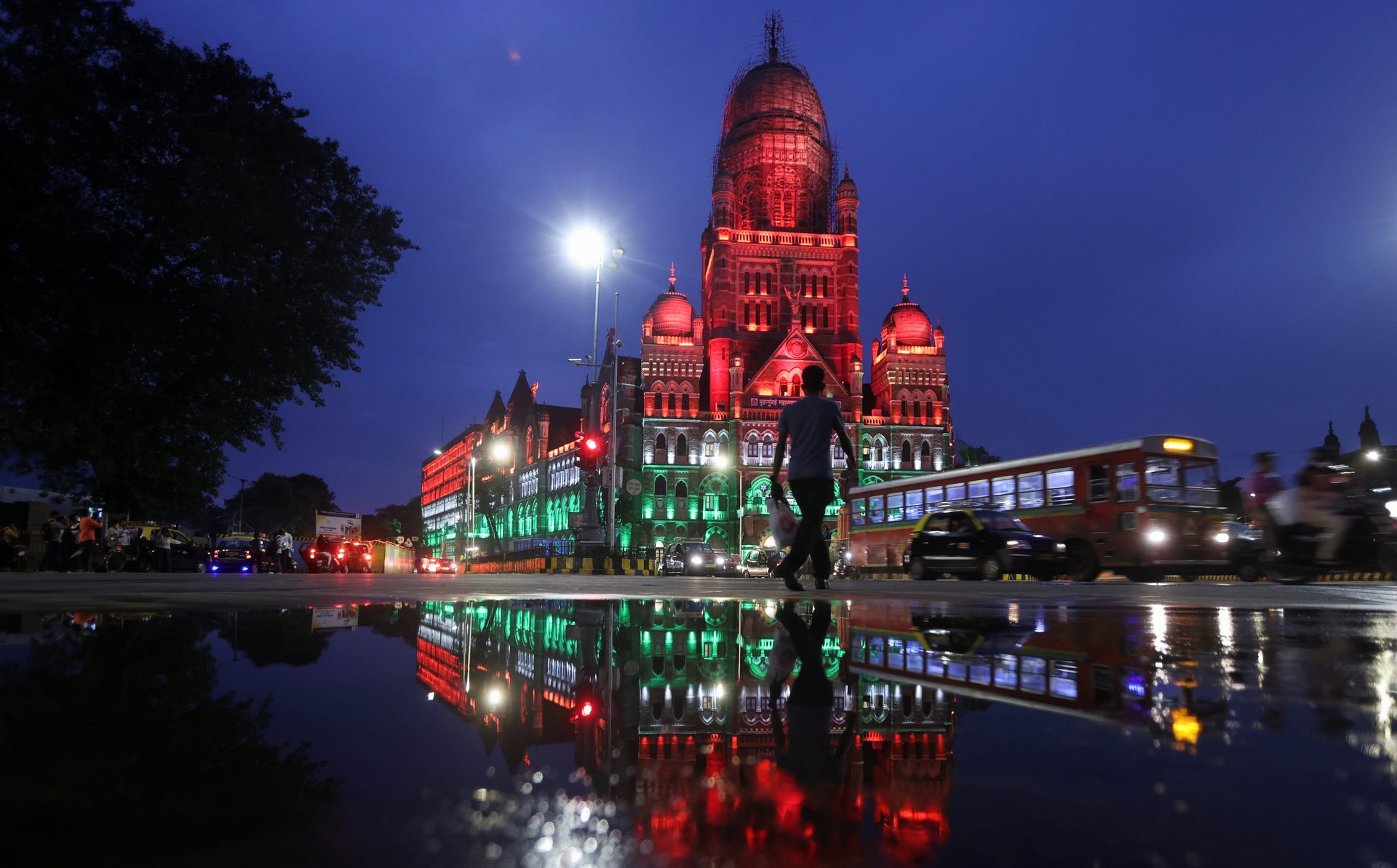

From 1999 to 2004, Deepak Pawar faced a string of rejections from the arranged marriage market. He was a tall, lean man in his early twenties, with high cheekbones and deep-set eyes. In the suburban Mumbai slum where he lived, most men his age had already tied the knot.
But to prospective brides and their families, Pawar was not eligible enough: he did not have a stable, well-paying job that could support a family.
Since 1998, Pawar had been working as a safai karamchari, or sanitation worker, responsible for sweeping garbage off the streets of Mumbai. It was a profession that many of the Maharashtrian Dalits in his slum had practised for generations, but some were luckier than others.
Those who were employed directly by the Brihanmumbai Municipal Corporation, or BMC, enjoyed respectable wages, of 9,000 rupees ($121) or more, and all the social welfare benefits that came with a secure government job, such as insurance, pensions and sick leave.
Workers like Pawar, on the other hand, were hired indirectly, by private contractors who were awarded BMC tenders for carrying out sanitation work.
Contract-based workers performed the same duties as the BMC’s permanent job-holders and were supervised by the same municipal officers. But they were paid less than the minimum wage—which was lower than Rs4,000 a month at the time—received no benefits, and were only given work on short-term contracts that were repeatedly renewed.
When Pawar first took up the contract-based job, he had expected to be absorbed into the BMC’s permanent workforce after a year or two. That did not happen, and he was left nursing blows to his self-esteem with each rejection from a prospective bride.
He had only one hope: a petition filed against the BMC in the Bombay High Court, by the Kachra Vahtuk Shramik Sangh, or garbage transport workers’ union, to which he belonged.
The petition, filed in 1999, demanded permanent employment for a batch of 580 contract workers, including Pawar and his colleagues. The union contended that the BMC’s system of short-term contracting was illegal and that the workers were eligible for permanent jobs as per the rules of the Contract Labour Act, 1970.
This was the second time that the Kachra Vahtuk union had taken up a legal fight for the rights of contract-based sanitation workers. Their first petition, in 1997, was filed on behalf of 1,200 such workers hired at Mumbai’s dumping grounds. In 2003, the case reached the Supreme Court, which directed the BMC to enter into a settlement with the union and grant permanent jobs to the workers.
This victory was a beacon of hope for Pawar. “It looked like we 580 workers would also win our case soon, so I was finally able to find a girl to marry,” he said.
Indeed, Pawar found a bride and married in 2004. But the legal victory he had promised her family never came. Instead, soon after his wedding, the BMC took an even more severe stance: he was demoted, along with thousands of other safai karamcharis, from a contract-based “worker” to a mere “volunteer.”
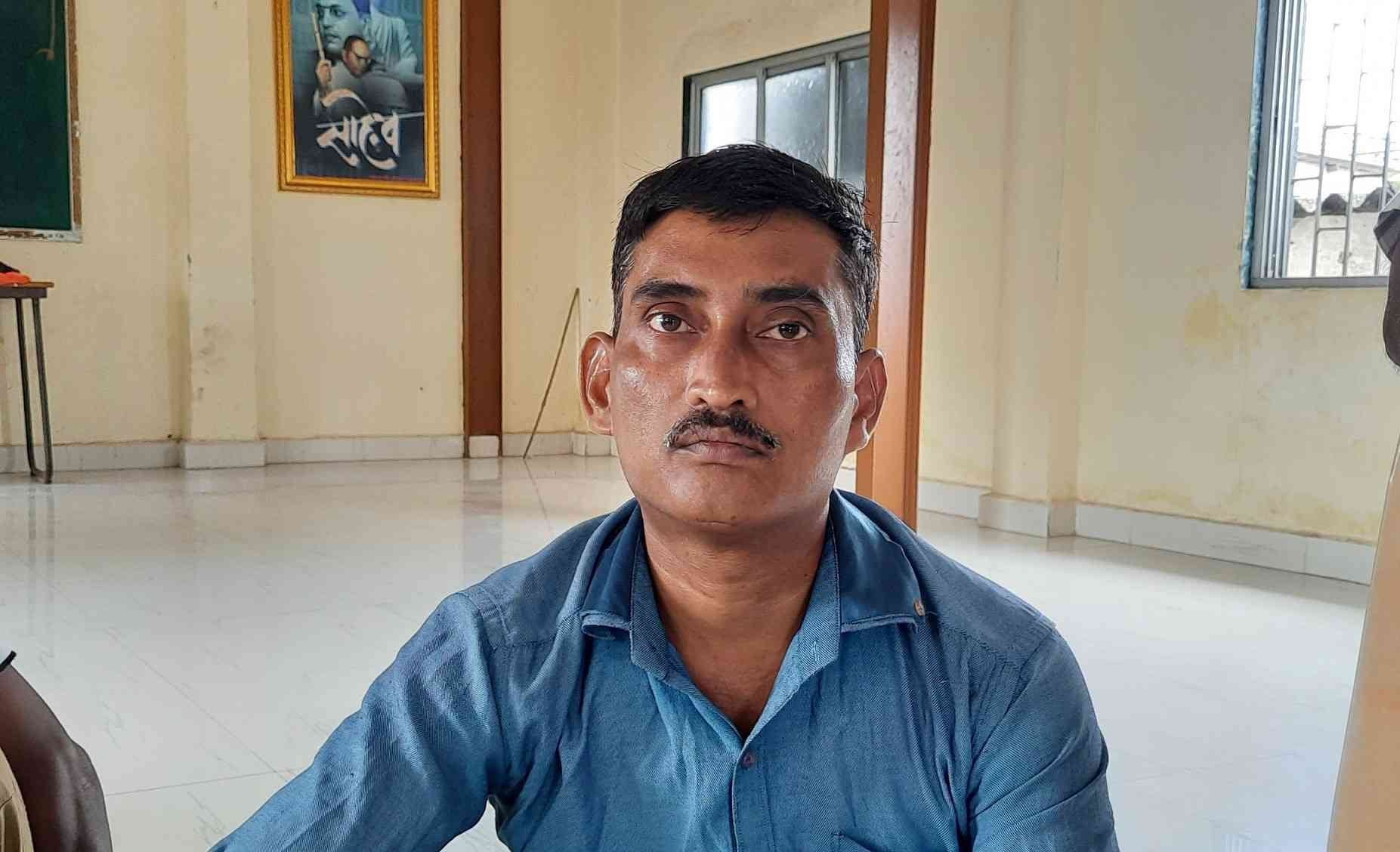
This was part of the BMC’s implementation of what it calls the “Hyderabad Pattern” in urban solid waste management, under which it altered the private contract system to include the widespread participation of non-governmental organisations in garbage collection and transportation.
The municipal corporation designed schemes that allowed it to hand out sanitation work contracts to NGOs and cooperative societies instead of private firms, ostensibly a move towards greater public participation in keeping the city clean.
The men and women who worked on the ground remained the same, but under the new schemes, they were designated as volunteers rather than workers. Their duties, too, were the same, but volunteers were paid “honorariums” and were not legally entitled to minimum wages.
For years, Pawar has been indignant about being called a volunteer.
“A volunteer should be able to go to work as and when he likes,” he said. “But we are expected to work 8 to 10 hours, and we are supervised so strictly. They fine us Rs200 or Rs250 a day even if we come five minutes late. How is this voluntary work?”
Life as volunteer
Life as a volunteer has meant years of domestic struggle and humiliation. “My in-laws still keep asking me why I don’t have a permanent job,” said Pawar, who is now 43 and has two daughters, aged 16 and 10. “Only I know how hard it is to run my home and pay my children’s school fees. I have no savings, and I owe lenders at least Rs2 lakh in debt.”
Such debts are common among many of the “volunteer” sanitation workers in Mumbai. In Pawar’s slum alone, workers listed debts ranging from Rs1 lakh to Rs30 lakh, largely owed to informal lenders who threaten violence when there is a delay in payments.
“I have collected a debt of Rs25 lakh over the years, and I earn just Rs16,000 a month,” said Uttam Mohite, 42, one of the 580 sanitation workers involved in the case. In 2018, Mohite injured his spine while lifting a heavy load of garbage into a trash can. The injury left him with a limp and a dependence on a crutch in one hand.
“If I was a permanent worker, the BMC would have paid my hospital bills. But I had no help, and now I have to continue doing the same work with a crutch.”
Soon after the Kachra Vahtuk union filed its petition on behalf of the 580 workers, the high court transferred the case to the industrial tribunal of Mumbai.
Before doing so, however, it addressed the union’s concerns about workers being removed from their jobs because of their involvement in the case: in an interim order, the court directed the BMC to ensure that private contractors prioritised giving work to the 580 workers in future contracts while the case was pending.
The BMC, however, was quick to violate this interim court order. Over the next few years, many of the 580 workers involved in the case repeatedly found themselves without work.
In June 2006, Pawar and over 60 other workers staged a protest against this lack of work outside a BMC ward office in Santacruz East. Their demand was simple: they wanted their jobs back.
The protest ended with a police lathi-charge and predictable cross-accusations: workers claimed the police hit and injured them, while the police booked 61 workers for assaulting their officers and preventing government servants from carrying out their duty. “We were detained for the whole day and then released late at night,” said Pawar. “We thought it was all over.”
For the next 15 years, the protesters and the union heard nothing from the police. They were not informed, said Pawar, when the police filed a charge sheet against them, or when hearings in their case were held at a magistrate’s court in their absence. “We had no idea that the court had declared us as absconders and had ordered our arrests,” said Ismail Shaikh, one of the accused sanitation workers.
On June 16 this year, five of the 61 accused protesters were suddenly arrested. One of them was Pawar. The other four – Santosh More, Ismail Shaikh, Subhash Sonawane and Subhash Gamre—were all residents of the same slum as Pawar. Officers at the Vakola Police Station declined to give Scroll.in information about the case and claimed that the inspector in charge had been transferred elsewhere.
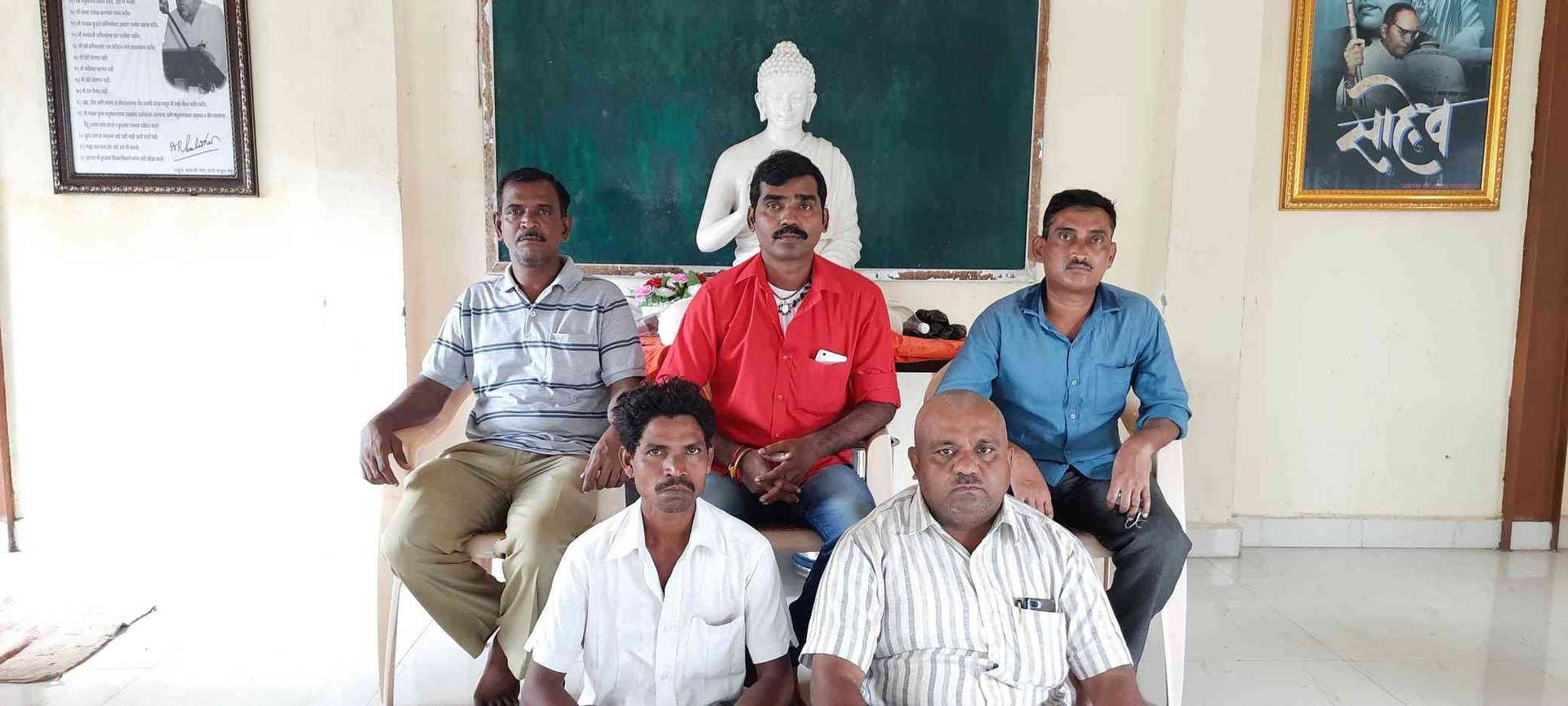
For three weeks after his arrest, Pawar lived through the most miserable period of his life, locked up in a room with 300 undertrials in Mumbai’s Arthur Road Jail. He spent his days strolling listlessly in the jail compound, trying not to get bullied by older prisoners.
At night, he lay stiff on a thin layer of gunny bags, squashed so tightly between others that it was impossible to turn in his sleep. For the first two weeks, he did not even get a change of clothes.
“I was stinking so much, I did not feel human,” said Pawar.
The next step
It took the union three weeks to secure bail for the five distraught men. When they emerged from jail on July 6, they were greeted with a piece of good news: after 22 years of waiting, the Industrial Tribunal had finally ruled in favour of the 580 sanitation workers. In its order on June 29, it directed the BMC to grant permanent jobs to all of them.
“We cried with happiness when we heard this,” said Pawar. “We had to fight for so long, but we won.”
The celebrations, however, were short-lived. In August, the BMC appealed the Tribunal’s order in the High Court, in what has become a predictable pattern.
Since 1997, the sanitation workers’ union had also filed two other cases demanding permanent jobs for batches of 1,200 and 2,700 contract-based workers respectively. In both cases, the Industrial Tribunal ruled in favour of the workers, but the BMC appealed to higher courts.
Both times, after grinding through the courts for as long as ten years, the BMC lost its appeals in the high court and the supreme court and was forced to grant permanent employment to the aggrieved workers.
“The nature of all these cases was almost the same, and the working conditions of the workers were identical,” said Milind Ranade, the general secretary of the Kachra Vahtuk Shramik Sangh.
“Every time, the Tribunal has passed comprehensive judgements describing the contract system as ‘sham and bogus’. And yet, the BMC continues the system and we have to keep going to court on behalf of different batches of workers.”
The BMC’s system of continually renewing short-term contracts for the same set of workers or “volunteers” may be illegal, but it is born out of existing provisions in national solid waste management policies.
In 1999, a landmark report by a Supreme Court-appointed committee recommended the involvement of the private sector and NGOs in urban solid waste management services.
Since then, central, state and local government policies across India have actively encouraged public-private partnership, including NGO participation, in sanitation work. The aim, according to these policies, is to enable cash-strapped municipalities to manage waste at lower costs.
This inevitably leaves room for municipalities and contractors to exploit workers, as the stories of Deepak Pawar and other sanitation workers show.
In 1991, Almitra Patel found her peaceful farm life on the outskirts of Bengaluru disrupted by mounds of reeking garbage. The city’s municipal corporation had begun dumping truckloads of waste near the city’s peripheral villages, as was happening in most other Indian cities at the time.
Patel, then 55 years old, was a retired engineer and poultry farmer. She had a degree from the Massachusetts Institute of Technology, and had dabbled in environmental activism throughout her career in the cement tile and refractories industry.
Determined to find a more hygienic solution to Bengaluru’s garbage dumping problem, Patel spent over two years pushing the city authorities to locate an alternate site to dispose of waste. She also travelled across India to understand solid waste management practices in different cities.
In 1996, Patel filed public interest litigation in the supreme court against the open dumping of municipal solid waste, naming the central government and every state government as respondents. The Court set up an eight-member committee headed by Asim Barman, the municipal commissioner of Kolkata at the time, to study the problem and propose remedies.
Patel was also included in the committee, and her work there turned her into an authoritative, influential figure in the field of solid waste management in the country.
The Barman committee’s report of 1999 was the first comprehensive document prescribing guidelines for streamlining the segregation, collection, transport, disposal and treatment of waste in urban India. It became the basis for the Municipal Solid Wastes (Management and Handling) Rules that the union environment ministry notified in 2000.
One of the “mandatory recommendations” listed in the Barman committee report was encouraging “private sector and NGO participation” and “waste collector cooperatives” in solid waste management.
Some cities, like Mumbai, were already engaging private contractors and contract-based labour for sanitation work, but the committee’s report took it a step further: it proposed officially amending the Contract Labour Act to allow private sector involvement in a service that urban local bodies are responsible for.
The report noted that solid waste management is highly labour intensive and expensive and that NGOs could play an important role in raising public awareness or organising collectives of rag-pickers to carry out doorstep garbage collection.
NGOs or the private sector could also be brought into areas where municipalities were not already providing services. This, the report said, would check the growth in waste management costs and bring in an element of “healthy competition” between the public and private sectors.
The Contract Labour Act was eventually not amended in the manner prescribed by the Barman report, and the environment ministry’s waste management rules of 2000 do not mention private sector or NGO participation.
But in the past two decades, encouraging private and NGO participation has become a key part of several policy documents and toolkits at the central, state and municipal level across India, including the Swachh Bharat Mission’s municipal solid waste management manual in 2016.
Patel, who is now 85 years old, told Scroll.in that she did not anticipate a situation where municipalities like Mumbai’s BMC would exploit provisions for private participation.
“Our intention was not privatisation in the sense that municipalities would hire contract workers with no negotiation rights,” she said, adding that she has not worked much on the labour aspects of sanitation.
Patel claimed that municipalities often do not like to make workers permanent because civic councillors end up using such workers as their personal guards, car washers or attendants, compromising the cleaning of the city.
“We felt that private players would be able to bring in a corporate attitude to the work, with better, more competitive services,” she said. “If a private facilities manager needs to retain good workers, they would obviously have to give them proper perks.”
Far from bringing in competitive services, the privatisation provisions in municipal waste management policies were brazenly manipulated by municipal corporations: first, through continual outsourcing of perennial and essential work, and then – as in the case of Hyderabad and Mumbai – specifically outsourcing work to NGOs, so that workers are reclassified as volunteers.
The dying hope
The introduction of NGO participation in Mumbai’s waste management began after the city’s municipal commissioner attended a disaster management seminar in Hyderabad in 2003, and observed that the city had made significant improvements in its own waste management.
This was achieved by dividing the city into small geographical units and inviting NGOs or cooperative societies to carry out cleaning work in each unit.
Inspired by this, the BMC launched this pattern in Mumbai in 2004 by inviting tenders from NGOs for sanitation work under three different schemes: the “Clean Area scheme”, the “Motor Loaders scheme” and the “Manning and Mopping scheme”.
Over the years, these tenders have been awarded to over 500 different NGOs that describe themselves as mahila sansthas (women’s organisations), berozgar sansthas (organisations for the unemployed), or local seva mandals (service groups), among other things.
Today, at least 8,000 sanitation workers are hired indirectly through these organisations. These workers regularly clean the streets of Mumbai alongside 28,028 workers with permanent jobs. In 2003, after the Supreme Court ruled in favour of the union, the BMC gave permanent posts to 1,200 contract-based workers.
In 2017, another 2,700 contract workers won their case in the Court, but the BMC has granted permanent jobs to just 1,600 of them so far.
The BMC’s reluctance to grant these jobs is evident in the way it fights and appeals each of these cases.
In addition to the ongoing case of the 580 contract-based workers, the Kachra Vahtuk union is now fighting two more cases of the same nature in the Industrial Tribunal, for batches of 1,300 workers and 1,100 workers respectively.
In all these cases, the BMC continues to insist that these workers are “volunteers” whose cleaning work is “over and above the statutory cleaning” that permanent workers carry out. The Contract Labour Act does not allow the use of contract-based labourers for work that is perennial in nature, but the BMC repeatedly attempts to classify the work of these volunteers as temporary.
In its submissions to the Industrial Tribunal in the case of the 580 sanitation workers, the BMC offered detailed justifications for denying permanent jobs or equal pay to contract-based workers.
The Clean Area scheme, it said, is meant for cleaning new roads and colonies, and roads where there is “no regular service by the corporation”. In 2007, the BMC had introduced machines for mechanical sweeping in these areas, and now claims at least 150 kilometres of Mumbai roads are cleaned mechanically.
Since it intends to expand mechanical sweeping, the BMC claimed there would be a “stiff decrease” in the number of workers required under the Clean Area scheme, precluding the need for permanent employees.
Similarly, the Motor Loaders scheme introduced special vehicles, called compactors, that allow for loading and unloading of municipal waste without manual handling. According to the BMC, this growing mechanisation in the transport of waste also justifies the corporation’s use of NGOs to supply volunteer motor loaders, rather than hiring permanent workers.
The third scheme, Manning and Mopping, is meant for cleaning streets in the second half of the day after the permanent workers have finished their morning shift from 6.30 am to 2.30 pm. “This is temporary work,” the BMC said in its submission to the Tribunal. “This work will diminish day by day as the citizens are likely to become more and more responsible in observing civic sense.”
For these reasons, the BMC claimed that workers hired through NGOs could not be “treated at par with duly appointed permanent employees”, and the “question of following equal pay for equal work does not arise”.
The BMC also argued that it could not, on technical grounds, give permanent jobs to contract-based sanitation workers, since they were not directly contracted by the BMC, to begin with.
“The workers are not employed by the BMC but by NGOs/cooperative societies, who pay them honorariums and keep a record of their attendance, and supervise their work,” the BMC said in its submissions to the Tribunal. “The workers have chosen to work as volunteers and accepted the terms of the engagement offered by the NGOs.”
What BMC is really doing?
Even while distancing itself from the workers, the BMC has ensured that its contracts with the NGOs—much like its contracts with private companies before 2004—skirt around requirements of labour laws.
Under the Industrial Disputes Act of 1947, for instance, a worker who has been in continuous service with an employer for more than 240 days must be regularised. But the BMC awards tenders for just seven months at a time to each NGO, ensuring that a worker’s contract period does not exceed 210 days.
“The BMC manages lists of all the workers, and it makes sure that workers are moved around from one contractor to another,” claimed Gautam Kamble, one of the 580 sanitation workers involved in the case and a senior member of the Kachra Vahtuk union.
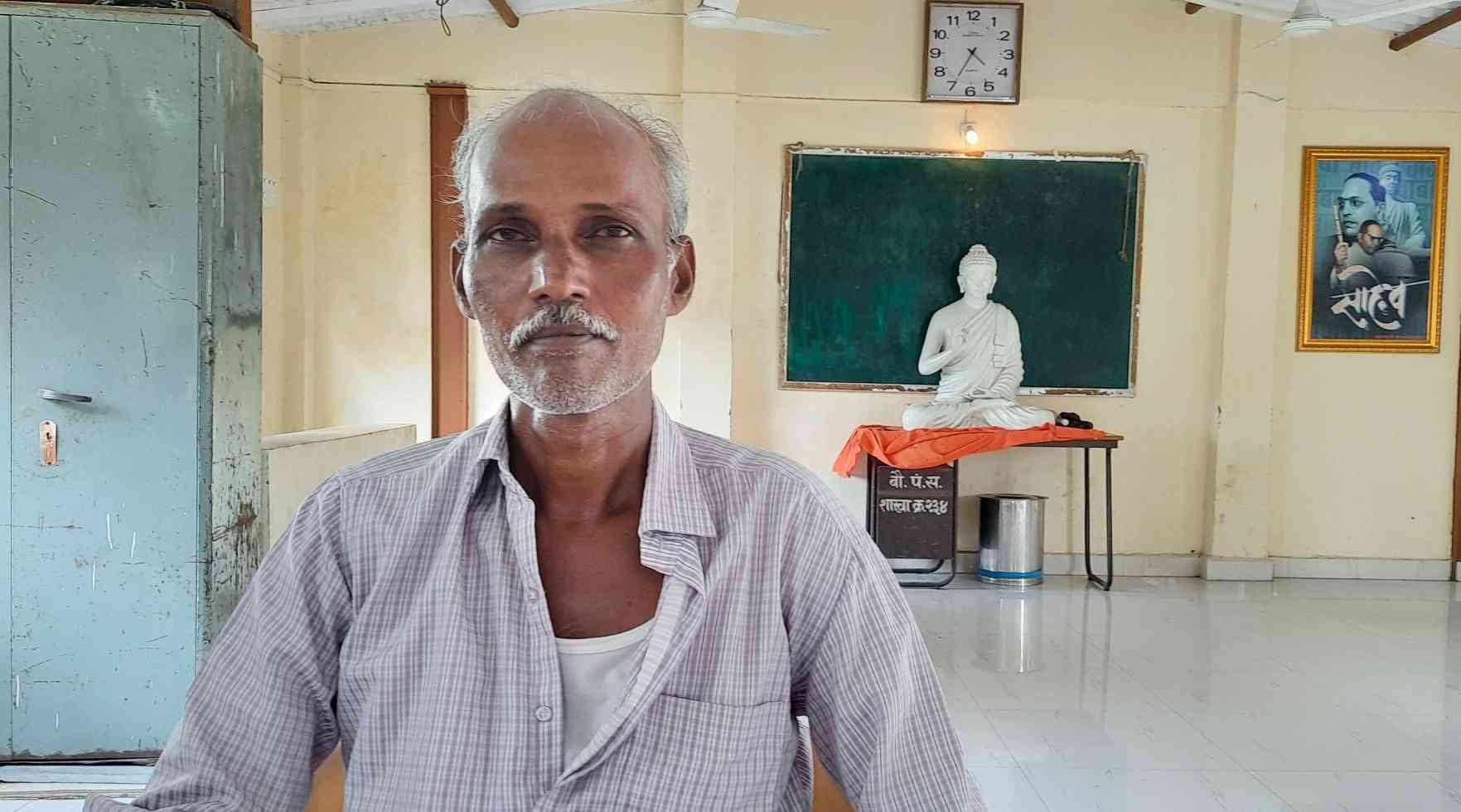
One of the tender conditions laid down by the BMC is that applicants—be they NGOs, private firms or labour cooperatives – should be licensed under the Contract Labour Act. However, the tenders also allow applicants to hire no more than 18 workers and one supervisor. This ensures that their work stays out of the purview of the Contract Labour Act, which is applicable only to establishments with 20 or more workers.
It is hard not to notice that sanitation workers impacted by these manoeuvers are, invariably, Dalits—the caste group that was historically forced to take up “dirty” professions. “In big cities like Mumbai, people don’t openly practice untouchability anymore, but 100% of all safai workers here are still Dalit,” said Dadarao Patekar, the vice president of the Kachra Vahtuk union.
“Poor people from other castes will take up any other low-paying job, but they refuse to touch kachra. And Dalits still find it difficult to get other kinds of work.”
For Pramila Dabhi, the “tricks” used by the BMC to keep her out of permanent work have cheated her of lakhs of rupees in wages that she should have earned in her 25 years of service.
The 56-year-old sweeper is one of the 580 workers in the union’s legal case, as well as one of the 61 accused booked for the protest case of 2006. When Scroll.in met her in September, she was busy at work on a street in central Mumbai, scooping up garbage from a gutter with two wooden boards and throwing them in a blue trash can.
The monotony of this work is broken more often than she desires – whenever she has to clean up a rotting animal carcass or call for help to clear broken furniture and other heavy objects that people dump outside public dustbins.
“I have been doing this same work every day since 1996, even though my contractor changes every six or seven months,” said Dabhi, a short, grey-haired woman with a constantly worried expression on her face.
Like all the other workers that Scroll.in met, Dabhi does not have any written contract or terms of employment in her possession. She finds it hard to keep track of the names of her changing contractors and has to refer to her monthly attendance card to remember them. Before 2004, the cards would bear the name of a private company; after the Hyderabad pattern was introduced, they bore the names of NGOs.
“But it doesn’t matter. For me, my employer is the BMC,” said Dabhi emphatically. “The contractor’s supervisor is there on the field, but it is the BMC ward supervisor who tells us what to do, and he is the one we go to when we have any complaints.”
The main complaint that Dabhi and her colleagues have had in recent years is the disproportionate amount of work they are expected to do.
“Normally, two permanent workers are assigned to clean a one-kilometre stretch of road – one person to sweep and one to collect the garbage and push the bin,” said Dabhi. “But in our case, they assign just one contract worker per kilometre. It is not fair.”
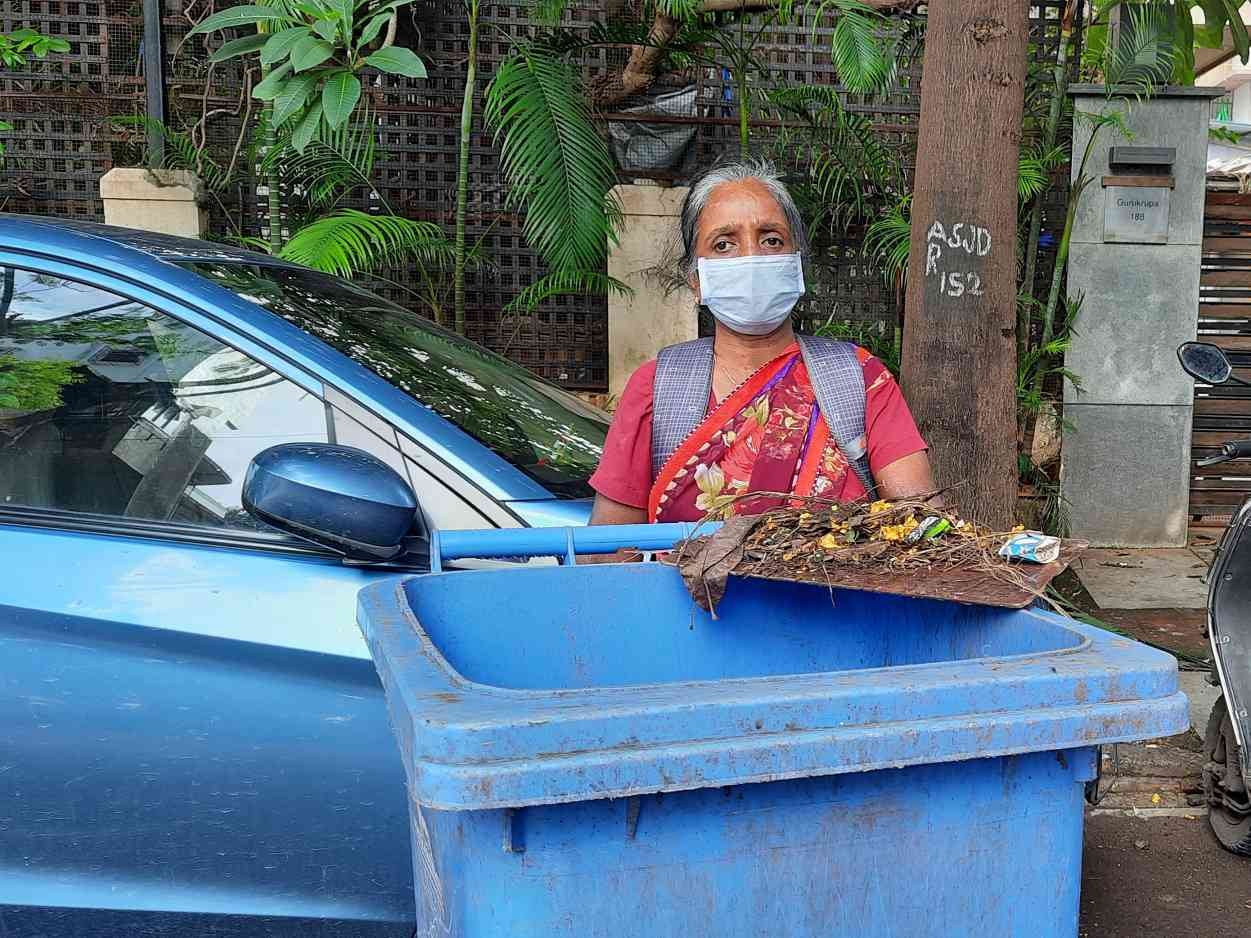
Dabhi and other members of the Kachra Vahtuk union earn the official minimum wage of Rs661 per day—something that union members fought for years to get.
“Workers who are not a part of the union get paid less—Rs250 or Rs300 a day,” said union member Gautam Kamble. “As union members, we have also successfully fought for bonuses, insurance and provident fund benefits. But even then, contractors don’t always give us these privileges properly.”
Money matters
By contrast, BMC’s permanent sanitation workers not only get all of these privileges but also salaries ranging from Rs23,000 to Rs 63,000, depending on their seniority. “Permanent workers who do the same work as us are able to live properly, send their children to better schools,” said Dabhi, who lives in a small one-room home with her ailing brother and sister.
“If I had a proper salary, I would not be struggling to pay for my sister’s dialysis. I would have been able to have savings as well.”
In 2017, when the union won the case of the 2,700 workers in the Supreme Court, the BMC agreed to pay notional arrears of Rs 1 lakh for each year that a worker had been in service. By this calculation, Dabhi should be entitled to over Rs 25 lakh for her years of work. The Kachra Vahtuk union has demanded such arrears for all the workers in their many legal petitions.
Despite these setbacks to their colleagues, Dabhi and other workers in the “580 batch” have drawn hope from the Industrial Tribunal’s order in their case.
Similar in language to its 2014 order in favour of the batch of 2,700 workers, the latest order in July this year came down heavily on the BMC for its stance against the workers.
To begin with, the Tribunal dismissed the BMC’s claims that the work done under its three schemes is temporary in nature and is beyond the statutory cleaning work carried out by permanent employees.
“Maintaining cleanliness in the city is a statutory duty and obligation of the BMC,” the Tribunal order said. This applies to new roads and areas that the BMC has included under the Clean Area scheme, as well as to garbage cleaned in the second half of the day, which the corporation has left to contract workers under the Manning and Mopping scheme.
Increasing mechanisation of cleaning work, too, would require more and more workers to operate the machines. “If at all number of compactors are increased, the number of required workers will also be increased,” the order said.
The Tribunal also refused to accept the BMC’s contention that the contract workers were not direct employees of the corporation. It pointed out that the BMC’s tenders themselves mention that workers have to follow the orders of the officers of the corporation and must face penalties if they deny any work assigned to them.
Besides, the tenders do not list the roles and responsibilities of the supervisors that the contracted NGOs must hire, indicating that these supervisors “are in name only.”
“It cannot be accepted that the concerned workers are the workers of NGOs/societies. All these workers are actually working for the corporation,” the order said. Accordingly, the BMC could not claim that these workers did not have a legal right to claim permanent jobs.
The BMC’s decision to appeal against the Tribunal order in the High Court means that the case could now drag on for several more years. While the union is confident it will ultimately win the case, its victory is unlikely to make any difference to the larger problem of exploitation of contract-based workers by municipal bodies.
Sangita Hasnale, the BMC’s deputy commissioner for solid waste management, did not respond to phone calls or messages. Emails to other officials in the department also went unanswered.
“The Barman committee report of 1999 introduced many positive changes in solid waste management, but it also gave legitimacy to privatisation,” said Mouleshri Vyas, a professor in the school of social work at Mumbai’s Tata Institute of Social Sciences.
“The patterns that were adopted after that were all part of a larger design to extract maximum work from as few workers as possible, to have the least costs and the least liability for the municipal corporation.”
Across India, said Vyas, discussions on ways to hold municipal bodies accountable take place largely within worker organisations, and any action or protests they initiate are usually at the local or city level. “Addressing issues of the informal workforce is challenging because they are fragmented, and dispersed, and mobilising them is an uphill task that needs perseverance,” she said.
Apart from the Kachra Vahtuk union, few labour unions across India are actually fighting for workers’ rights to permanency. “The larger discourse has shifted towards providing social security for contract and informal workers because there is an acceptance that these workers will continue to exist.”
Workers like Pramila Dabhi and Deepak Pawar are aware of this, yet hold on to hope. “We have been waiting for 22 years, and now we have to wait some more,” said Pawar. “But if other workers have won the same type of case before, then I know we will also win.”
On the losing side?
Others, like 61-year-old Ramesh Tambe, have lost all sense of hope. Tambe was one of the 61 workers accused in the 2006 case of protesting outside the BMC ward office. “I was injured so badly in the police lathi charge that I had to stop working,” said Tambe, who struggles to walk without help.
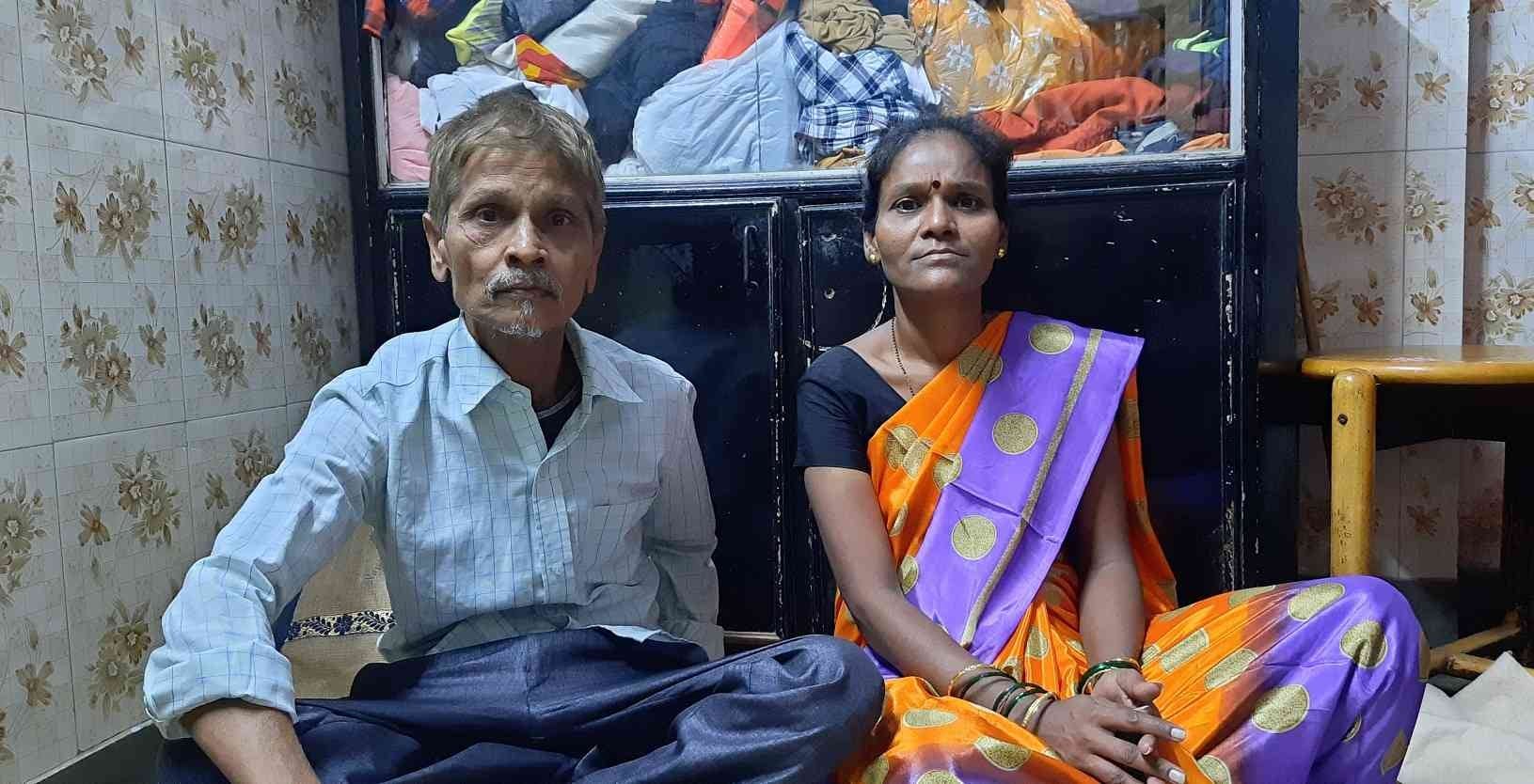
For nearly a decade, his wife has worked as a domestic worker to bring in an income, while his sons take up any job they can get. “Even if we win this case and the BMC offers me a permanent job, I will not be able to take it,” said Tambe. “I only hope that they allow my wife or son to take up the job in my place.”
This reporting is made possible with support from Report for the World, an initiative of The GroundTruth Project. The piece was originally published on Scroll.in. We welcome your comments at [email protected].